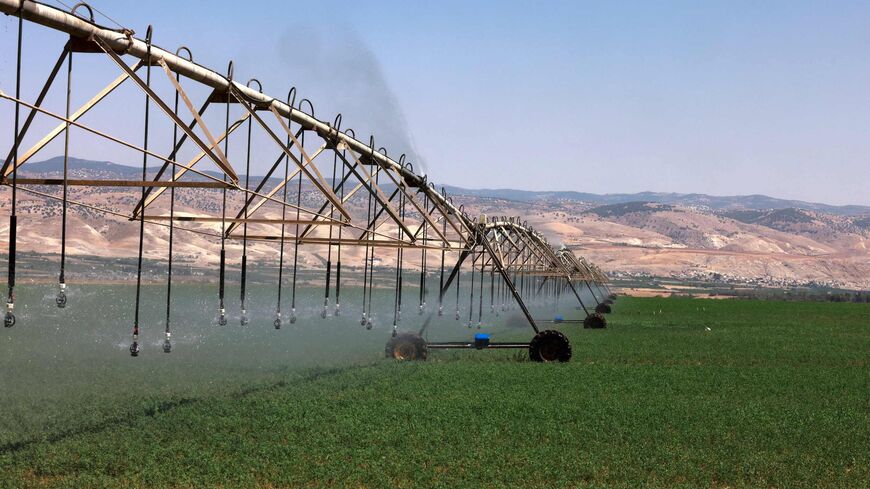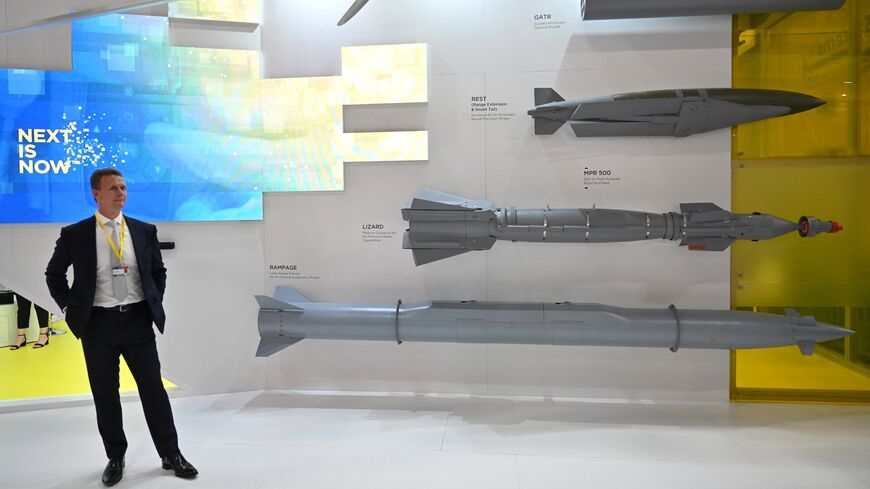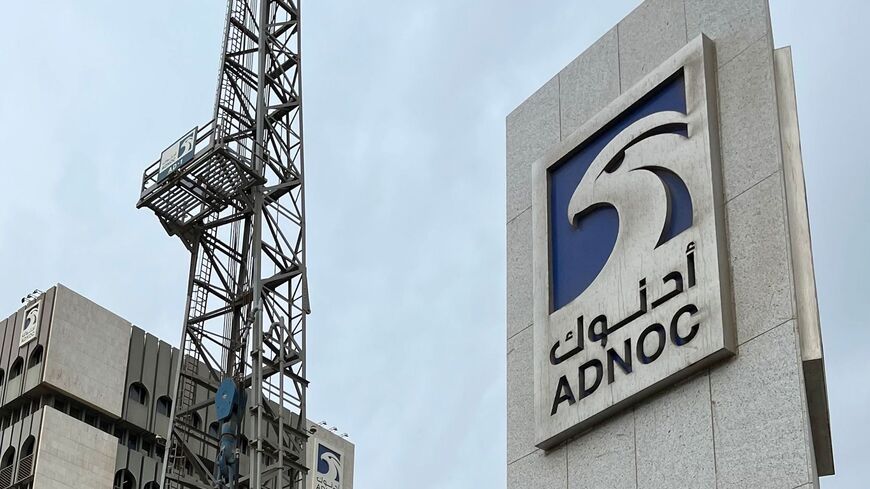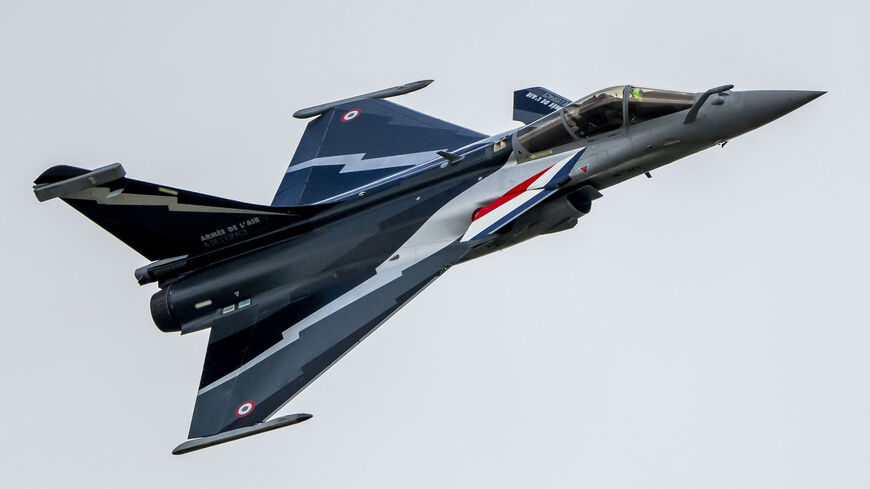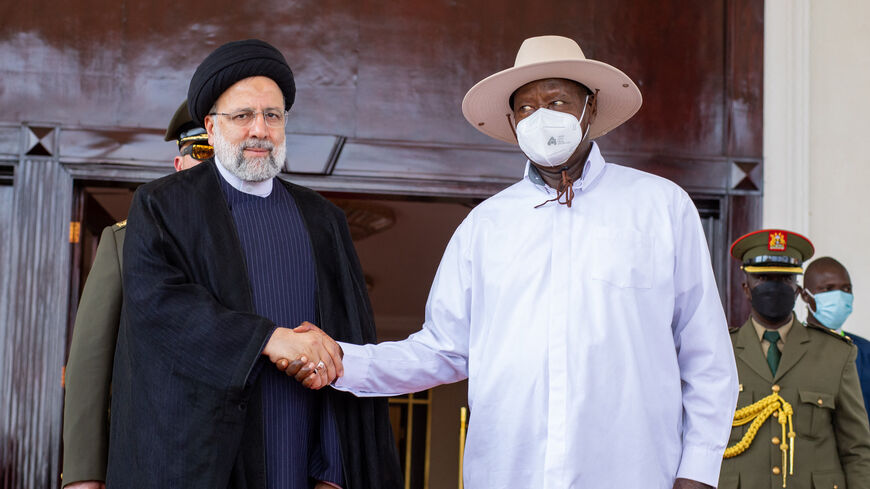Israeli arms exports to get lift from Ukraine war and rising global tensions
Al-Monitor Pro Members
David Rosenberg
Israeli reporter specializing in business, economics and politics
June 28, 2023
Israel exported a record $12.5 billion in arms last year, the Defense Ministry said June 14, and that growth is likely to continue over the next several years. Israel is well-positioned to take advantage of growing global defense spending in the wake of the Ukraine war and due to growing tensions in the Gulf and with China. That is because Israeli weapons manufacturing is heavily weighted toward drones, missiles, electronic warfare and air defense systems, all of which have played a major role in the Ukraine conflict. Israel’s cutting-edge cyberhacking technology remains dogged by controversy due to customer abuse, but demand remains brisk for other cyberwarfare segments. In addition, the government is doing more than ever to encourage exports, cutting red tape and entering into more government-to-government deals. Increased exports are critical to the country’s defense industry, which sells as much as 80% of its products and services abroad.
- Israeli defense exports rose about 10% in 2022 to a record $12.5 billion, according to a June 14 report by the Defense Ministry’s International Defense Cooperation Directorate (SIBAT). That marked the third year of double-digit growth, spurred by new markets in the Arab world, the Ukraine war and growing concerns about China. Led by Israel's big three defense firms — Elbit Systems, state-owned Israel Aerospace Industries (IAI) and Rafael Advanced Defense Systems — some 120 firms signed contracts for new orders last year.
- The growth in exports since 2020 follows a long period between 2007 and 2019 when exports languished at between $5.5 billion and $7.5 billion annually. The recent increase looks set to continue as global defense spending rose 6.4% in 2022 to $1.91 trillion and is expected to climb another 25% to $2.38 trillion by 2028, according to defense and aerospace research firm Forecast International.
- Although Israeli exports to Europe were down 21% in 2022, they should rise going forward. The Ukraine war has heightened European fears of Russian aggression, causing countries to step up defense procurement. In addition, many countries have depleted their inventories of missiles, rockets, drones and air defense equipment to aid Ukraine’s war effort. Among the biggest orders yet to be fulfilled, German lawmakers on June 14 approved an initial payment on a 4 billion Euro ($4.4 billion) deal to purchase Israel's Arrow 3 air defense system.
- Israel exported about $3 billion in arms to Abraham Accord countries (the United Arab Emirates, Bahrain and Morocco) last year, up from $853 million in 2021 and virtually nil in 2020. Concerned about the standoff with Iran and drone attacks on critical installations by Iranian proxies, the UAE has reportedly deployed Israel’s Barak and Spyder air defense systems in the past year. Outside the Gulf, Morocco was reported in February 2022 to have bought a Barak MX air-defense system for $600 million.
- Arms exports to Asia were flat at about $3.8 billion last year, but it remains Israel’s single biggest market and is poised to grow in response to growing concerns about China. In India, a key market for Israel, Prime Minister Narendra Modi is ramping up spending to modernize the military. Much of Israeli weaponry bought by India is produced locally in tie-ups between Elbit and IAI with Hindustan Electronics and Bharat Electronics.
- The changing nature of warfare, as evidenced in the Ukraine conflict, is working to Israel's advantage in defense electronics. The war has highlighted the strategic role of drones and missiles and conversely the need for sophisticated, multi-layer air defense systems. In 2022, UAV and drone systems accounted for 25% of Israeli defense exports, with missile, rockets and air defense comprising 19% and radar and electronic warfare 13%. PwC ranked Israel No. 5 in the world last year for countries with the most promising aerospace development.
- Cyberwarfare technology comprised just 6% of Israel’s 2022 defense exports, which reflects the relatively low cost of systems and troubles Israel has encountered with customer abuses of its cyber hacking equipment. Two Israeli companies (NSO group and Candiru) were blacklisted by the US Commerce Department in 2021. Nevertheless, the technology and other cyberwarfare technology remains very much in demand. The government of Prime Minister Benjamin Netanyahu is expected to give more support to the sector than the previous government.
- Israel has always encouraged defense exports because they help cut manufacturing unit costs, cover heavy research and development investment and strengthen diplomatic ties. More recently, the Defense Ministry has sought to do more to encourage exports, among other things, by cutting red tape for approvals. Last year, it completed a record $4 billion of government-to-government deals. Such sales can make it easier to sign contracts because they are classified, involve lower intermediary costs, and shorten the bidding and acquisition process.
- Of the big three Israeli defense companies, only Elbit Systems is publicly traded. Plans to privatize state-owned IAI by selling a 25% stake for about 3 billion shekels ($816 million) have been delayed till the end of the year due to a poor market for initial public offerings and unresolved pay issues, the company said June 13. Rafael remains in state hands. Israeli companies have established overseas arms to help win contracts by offering local content. Rafael, for example, formed European-based EuroTrophy last year with Germany’s Krauss-Maffei Wegmann and Spain-based General Dynamics European Land Systems.
Scenario 1: Israeli defense exports continue to grow, led by Europe
Regardless of how the war in Ukraine develops, European countries, especially those closed to Russia, will remain committed to increased defense spending. But orders and deliveries will take time to materialize as budgets need to be approved and allocated — for example, Germany first mulled buying Arrow 3 in March 2022, allocations were approved 16 months later, a deal is expected to be signed later this year and delivery in the fourth quarter of 2025. Orders from the original Abraham Accord partners will continue apace, with more demand coming from Saudi Arabia after it normalizes relations with Israel. The Asian market continues to grow as India, Japan and other countries boost defense spending to match Chinese increases and due to anxiety over Beijing’s regional ambitions in Taiwan and elsewhere. Privatization turns the IAI into a more efficient and aggressive player.
Scenario 2: Global defense spending growth stalls
A resolution to the Ukraine war seen by Europe as favorable alleviates pressure to increase defense spending or restock inventories quickly. Fanned by controversial policies of Israel’s right-wing government, political resistance to buying Israeli arms, which had dissipated after the war broke out, re-emerges and loses sales for Israel. In the Arab world, efforts to normalize relations with Saudi Arabia fail or do not develop into more than a cold peace that precludes arms deals. Efforts to reduce tensions with Iran are successful, leading other Gulf powers to reconsider some of their defense spending. Security tensions in Asia also dissipate as China pulls back from threats over Taiwan and/or slower economic growth causes it to rein in its own defense spending. The IAI privatization is put off indefinitely.
It seems unlikely that global tensions in Europe, the Middle East or Asia will be easing for the foreseeable future, therefore worldwide defense spending is likely to grow at least as quickly as projected over the next five years. Moreover, the Ukraine war has shown defense policy makers how wars will be fought in the future, with drones and precision missiles assuming a bigger role at the expense of manned aircraft. That will require not only appropriate offensive capabilities but sophisticated air defenses – all areas in which Israel has developed expertise. Given its deep history of arms development and the needs of the Israel Defense Forces, Israel should be able to maintain its place at the forefront of defense technology. That said, Israel may not be able to fully exploit its technology assets in the European market if political objections re-emerge over its treatment of the Palestinians. Under the current rightist government that risk has grown.
David Rosenberg has more than 30 years experience reporting, commenting and speaking on business, economics and politics in Israel and the Middle East. He has worked for Reuters, The Jerusalem Post and Dow Jones, and was bureau chief for Israel for Bloomberg News. He is the author of two books (Cloning Silicon Valley, 2001, and Israel’s Technology Economy, 2018) and has been published in The Wall Street Journal and Foreign Policy. He now writes commentary for the Haaretz daily.
We're glad you're interested in this memo.
Memos are one of several features available only to PRO Expert members. Become a member to read the full memos and get access to all exclusive PRO content.

Already a Member? Sign in
The Middle East's Best Newsletters
Join over 50,000 readers who access our journalists dedicated newsletters, covering the top political, security, business and tech issues across the region each week.
Delivered straight to your inbox.
Free
What's included:
Free newsletters available:
- The Takeaway & Week in Review
- Middle East Minute (AM)
- Daily Briefing (PM)
- Business & Tech Briefing
- Security Briefing
- Gulf Briefing
- Israel Briefing
- Palestine Briefing
- Turkey Briefing
- Iraq Briefing
Premium Membership
Join the Middle East's most notable experts for premium memos, trend reports, live video Q&A, and intimate in-person events, each detailing exclusive insights on business and geopolitical trends shaping the region.
$25.00 / month
billed annually
$31.00 / month
billed monthly
What's included:
Memos - premium analytical writing: actionable insights on markets and geopolitics.
Live Video Q&A - Hear from our top journalists and regional experts.
Special Events - Intimate in-person events with business & political VIPs.
Trend Reports - Deep dive analysis on market updates.
We also offer team plans. Please send an email to pro.support@al-monitor.com and we'll onboard your team.
Already a Member? Sign in


